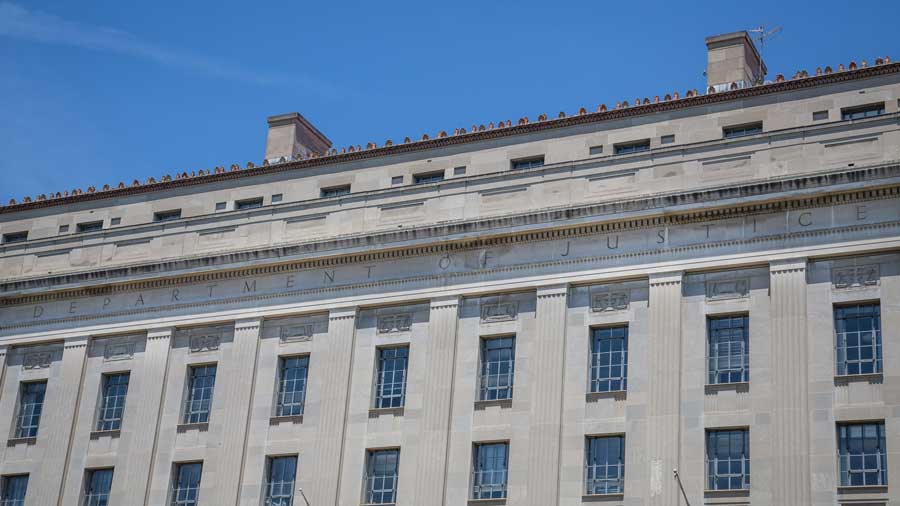Justice Provides Guidance on CLOUD Act

The smarter way to stay on top of broadcasting and cable industry. Sign up below
You are now subscribed
Your newsletter sign-up was successful
The Justice Department is providing some thoughts on what it sees as the scope, effect and implications of the Clarifying Lawful Overseas Use of Data (CLOUD) Act, which passed a year ago this month.
That comes in a just-released White Paper, "Promoting Public Safety, Privacy, and the Rule of Law Around the World: The Purpose and Impact of the CLOUD Act.
The act updates how law enforcement can get "lawful and efficient" access to electronic communications from [U.S.] service providers [and vice versa] in investigations, no matter where it is stored, and "while respecting privacy interests and foreign sovereignty. It restricts such agreements only to other "rights-respecting countries that abide by the rule of law."
Related: COULD Act Promotes Access to Data for Surveillance
The White Paper also includes a list of FAQs.
Covered by the act are "data stored or processed by communications service providers. including the contents of e-mails and texts, non-content information (like IP addresses), subscriber data and data stored remotely (in the cloud).
"As today’s white paper makes clear, the Department will be proactive in working, both in the United States and abroad, to promote greater understanding and appreciation of what the CLOUD Act accomplishes," said Deputy Attorney General Rod Rosenstein in releasing the white paper.
The smarter way to stay on top of broadcasting and cable industry. Sign up below
“Our collective safety and security depends on our ability to maintain lawful and efficient access to electronic evidence, and the CLOUD Act offers a sorely-needed solution to that challenge,” he said.
In a speech last week in London, Deputy Assistant Attorney General Richard Downing talked about how, working with international partners, the Department has "taken down" DarkNet marketplaces selling guns, opioids and other drugs, and stolen identities and investigated child exploitation, in one case "identifying and rescuing over 250 children around, as well as shutting down a bitcoin exchange allegedly laundering billions of dollars in criminal proceeds.
Related: Senate Bill Aids Global Government Surveillance
But he said those efforts "are only the tip of the iceberg when it comes to the need for effective sharing of electronic evidence," which is where the CLOUD Act comes in.
Given the current speed of communications and the cloud storage that clouds exactly where communications reside, the bill was meant to make it quicker and easier to access to information held by "U.S.-based global providers" that other countries may say they need to help in such investigations.
"The assistance requests the United States receives often seek electronic information related to individuals or entities located in other countries, and the only connection of the investigation to the United States is that the evidence happens to be held by a U.S.-based global provider," Justice pointed out.
He called the act a "model for international cooperation," helping to clear the way for information gathering in situations where one country may restrict disclosures and another doesn't.
Contributing editor John Eggerton has been an editor and/or writer on media regulation, legislation and policy for over four decades, including covering the FCC, FTC, Congress, the major media trade associations, and the federal courts. In addition to Multichannel News and Broadcasting + Cable, his work has appeared in Radio World, TV Technology, TV Fax, This Week in Consumer Electronics, Variety and the Encyclopedia Britannica.

